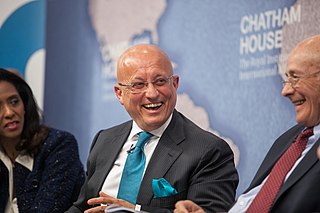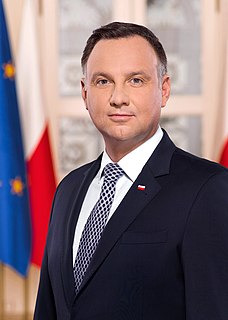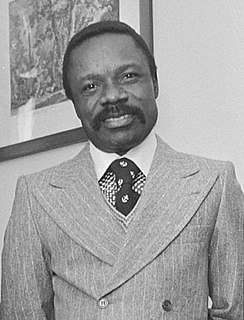A Quote by Sergey Karaganov
American politicians have openly said that the sanctions are aimed at bringing about regime change in Russia. That's aggressive enough.
Quote Topics
Related Quotes
That`s how you end up with a guy like Dan Fried, overseeing the U.S. sanctions against Russia for Russia did in Ukraine and Crimea.Russia hates those sanctions more than they love life. They hate those sanctions. So, of course, you need your toughest and most experienced guy running those sanctions.
Some French politicians have said that the European Union should drop sanctions against Russia so everybody can join together in this fight against the Islamic State. But we're hearing from French officials that [Francois] Hollande hasn't changed his stance. He's - he's still saying that sanctions shouldn't be lifted until the Minsk agreement has been implemented.
We do not agree with policies that would lead to attempts at easing sanctions or lifting them and returning to business as usual with Russia. We believe that such behaviour will only embolden the aggressive behavior of Russia, as the last 12 years have shown, starting with Russia's attack on Georgia in 2008.
Regime change has been an American policy under the Clinton administration, and it is the current policy. I support the policy. But regime change in and of itself is not sufficient justification for going to war--particularly unilaterally--unless regime change is the only way to disarm Iraq of the weapons of mass destruction pursuant to the United Nations resolution.
We should fulfill the Minsk Protocol. The main reason for the sanctions is that Russia broke a taboo: It triggered a war in Europe. Crimea is a problem, but the most painful part of the sanctions is tied to the war in the Donbas. As soon as Russia takes real steps to prevent shots from being fired there, this part of the sanctions will be lifted.
US opposition to Russia and China has entailed sanctions against Russia, and Russia in turn has made counter-sanctions against Europe. So Europe is essentially sacrificing its opportunities for trade and investment in order to remain part of NATO. It is also agreeing to bomb Syria and the Near East, creating a wave of refugees that it doesn't know what to do with.
Everything we've done has been designed to make sure that we address that number one priority. That's what the sanctions regime was all about. That's how we were able to mobilize the international community, including some folks that we are not particularly close to, to abide by these sanctions. That's how these crippling sanctions came about, was because we [USA] were able to gain global consensus that Iran having a nuclear weapon would be a problem for everybody.
I rang my friend Jim Wolfensohn, who was then running a private commercial bank in New York. I said, "Come up to Vancouver", and he did. I put my proposition to him. He said, "I think it could work." I said, "Will you help us?" He said, "Yes." So, I set aside senior people in our treasury and they worked with Wolfensohn and the investment sanctions were applied. And that's what brought the regime down. The last South African Finance Minister, Barend du Plessis, went on record as saying that it was the investment sanctions that put the final nail in the coffin of apartheid.
Israel's discourse with the United States on the subject of Iran's nuclear project is more significant, and more fraught, than it is with Europe. The U.S. has made efforts to stiffen sanctions against Iran and to mobilize countries like Russia and China to apply sanctions in exchange for substantial American concessions.
Under the current U.S. policy, because of this power struggle, American oil companies can't do business with Iran. So I think the ultimate goal of the U.S. administration in Iran is regime change, to put into power a pro-Western government that will eliminate the strategic challenge to U.S. interests and, at the same time, allow the lifting of sanctions and allowing American oil companies to do business with Iran.
































